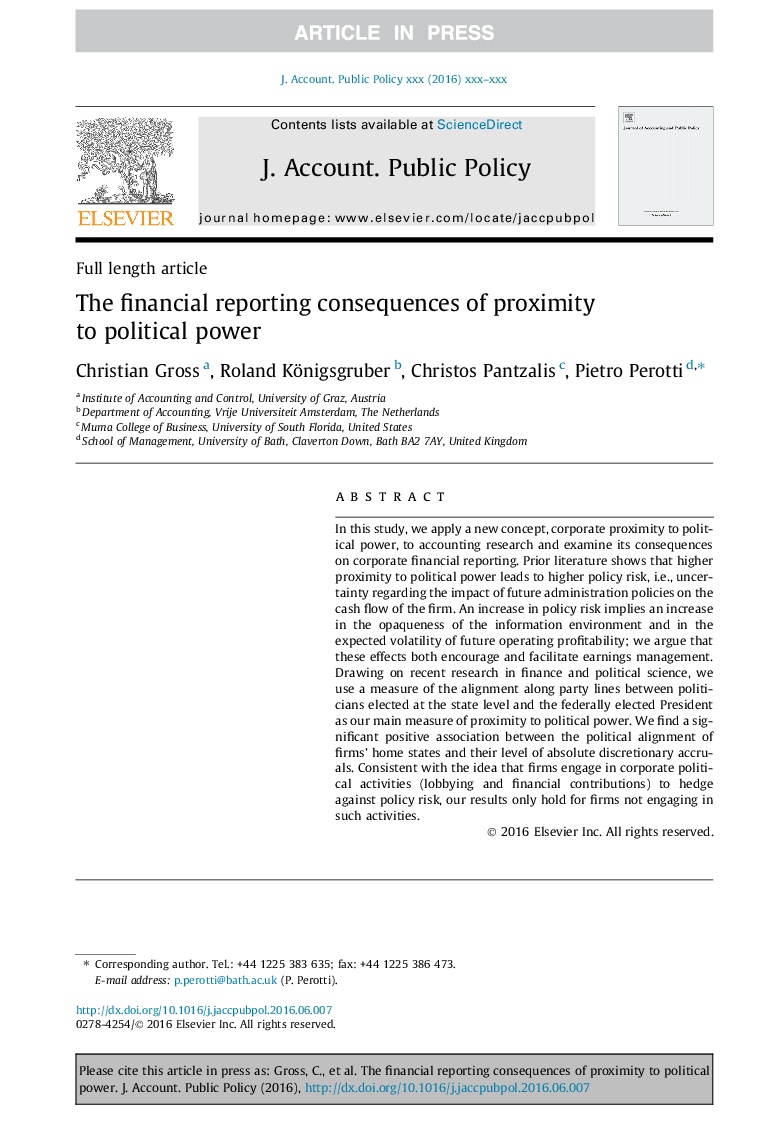| Article ID | Journal | Published Year | Pages | File Type |
|---|---|---|---|---|
| 5107731 | Journal of Accounting and Public Policy | 2016 | 26 Pages |
Abstract
In this study, we apply a new concept, corporate proximity to political power, to accounting research and examine its consequences on corporate financial reporting. Prior literature shows that higher proximity to political power leads to higher policy risk, i.e., uncertainty regarding the impact of future administration policies on the cash flow of the firm. An increase in policy risk implies an increase in the opaqueness of the information environment and in the expected volatility of future operating profitability; we argue that these effects both encourage and facilitate earnings management. Drawing on recent research in finance and political science, we use a measure of the alignment along party lines between politicians elected at the state level and the federally elected President as our main measure of proximity to political power. We find a significant positive association between the political alignment of firms' home states and their level of absolute discretionary accruals. Consistent with the idea that firms engage in corporate political activities (lobbying and financial contributions) to hedge against policy risk, our results only hold for firms not engaging in such activities.
Related Topics
Social Sciences and Humanities
Business, Management and Accounting
Accounting
Authors
Christian Gross, Roland Königsgruber, Christos Pantzalis, Pietro Perotti,
